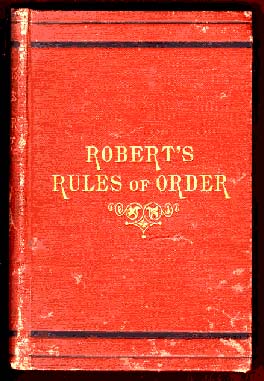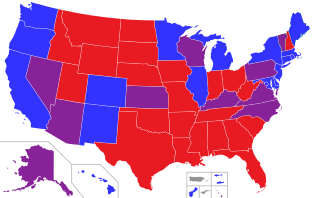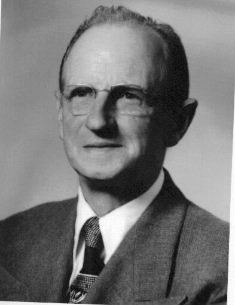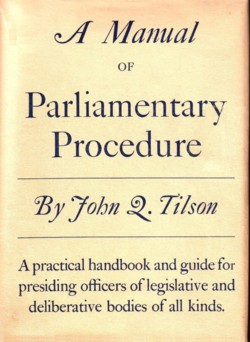
Robert's Rules of Order, often simply referred to as Robert's Rules, is a manual of parliamentary procedure by U.S. Army officer Henry Martyn Robert (1837-1923). "The object of Rules of Order is to assist an assembly to accomplish the work for which it was designed [...] Where there is no law [...] there is the least of real liberty." The term Robert's Rules of Order is also used more generically to refer to any of the more recent editions, by various editors and authors, based on any of Robert's original editions, and the term is used more generically in the United States to refer to parliamentary procedure. It was written primarily to help guide voluntary associations in their operations of governance.

In the United States, the state legislature is the legislative branch in each of the 50 U.S. states.

Parliamentary procedures are the accepted rules, ethics, and customs governing meetings of an assembly or organization. Their object is to allow orderly deliberation upon questions of interest to the organization and thus to arrive at the sense or the will of the majority of the assembly upon these questions. Self-governing organizations follow parliamentary procedure to debate and reach group decisions, usually by vote, with the least possible friction.

The California State Legislature is the bicameral state legislature of the U.S. state of California, consisting of the California State Assembly and the California State Senate. Both houses of the Legislature convene at the California State Capitol in Sacramento.
In deliberative bodies, a second to a proposed motion is an indication that there is at least one person besides the mover that is interested in seeing the motion come before the meeting. It does not necessarily indicate that the seconder favors the motion.
A parliamentary authority is a book of rules for conducting business in deliberative assemblies. Several different books have been used by legislative assemblies and by organizations' deliberative bodies.
The National Conference of State Legislatures (NCSL), established in 1975, is a "nonpartisan public officials' association composed of sitting state legislators" from the states, territories and commonwealths of the United States.

Joseph Allan Beek was the longest-serving Secretary of the Senate in California history (1919–68). The Secretary of the California State Senate is a nonpartisan officer of the Senate who advises the presiding officer and Senators on parliamentary procedures and is the chief recordkeeper of the Senate. The Secretary is elected by majority vote of the Senators for each two-year session.
In parliamentary procedure, reconsideration of a motion may be done on a matter previously decided. The motion to "reconsider" is used for this purpose. This motion originated in the United States and is generally not used in parliaments. A special form of this motion is reconsider and enter on the minutes.
In parliamentary procedure, an objection to the consideration of a question is a motion that is adopted to prevent an original main motion from coming before the assembly. This motion is different from an objection to a unanimous consent request.
Paul Mason (1898–1985) was an American writer, parliamentarian, historian, and assistant Secretary of the California State Senate in the first half of the 20th century. Mason wrote the first edition of Mason's Manual of Legislative Procedure in 1935.
In parliamentary procedure, a motion to appeal from the decision of the chair is used to challenge a ruling of the chair.
In the United States, a parliamentarian is an expert on parliamentary procedure who advises organizations and deliberative assemblies. This sense of the term "parliamentarian" is distinct from the usage in parliamentary republics and monarchies as a synonym for member of parliament.
In United States parliamentary procedure, a suspension of the rules allows a deliberative assembly to set aside its normal rules to do something that it could not do otherwise. However, there are rules that cannot be suspended.
In a deliberative assembly, disciplinary procedures are used to punish members for violating the rules of the assembly.
In parliamentary procedure, requests and inquiries are motions used by members of a deliberative assembly to obtain information or to do or have something done that requires permission of the assembly. Except for a request to be excused from a duty, these requests and inquiries are not debatable nor amendable.
The history of parliamentary procedure refers to the origins and evolution of parliamentary law used by deliberative assemblies.

Tilson's Manual, or A Manual of Parliamentary Procedure, is a parliamentary authority written by John Q. Tilson and published in 1948.
The motion to pass on is a dilatory parliamentary motion used in parliamentary procedure. It is distinct from the motion to table or to postpone to a certain time. The motion delays consideration of a matter for a later time without indicating prejudice with respect to it. According to Mason's Manual, matter passed on in this way remains subject to subsidiary motion. The motion to pass on is not subject to debate, but requires a majority vote.

The clerk, chief clerk, secretary, or secretarygeneral of a legislative chamber is the senior administrative officer responsible for ensuring that its business runs smoothly. This may encompass keeping custody of documents lain before the house, received, or produced; making records of proceedings; allocating office space; enrolling of members, and administering an oath of office. During the first sitting of a newly elected legislature, or when the current presiding officer steps down, they may act as the presiding officer in the election of a new presiding officer such as the speaker or president. The clerk in some cases has a ceremonial role. A clerk may also advise the speaker or members on parliamentary procedure, acting in American parlance as a "parliamentarian".







